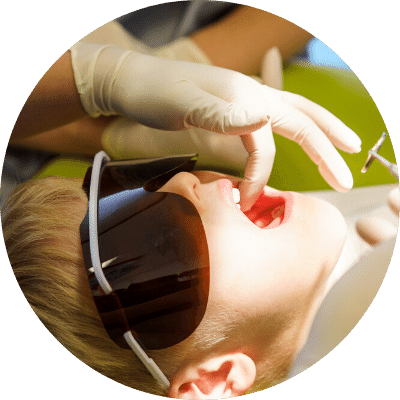Parents Limit Their Children’s Sugary Food and Drink Intake to Ensure Good Oral Health (INFOGRAPHIC)

Of the 10 countries surveyed, the United States ranks second last with less than a third of parents limiting sugar levels in their children´s diet.
The UK ranks highest with just over half of parents indicating they restrict sugar levels.
Less than half of parents take their children at least once a year for a dental check-up.
Less than half of parents proactively limit the intake of sugary food and drinks such as candy, soda drinks and juice to their children as a means of protecting their teeth, according to a YouGov survey of 10 developed and developing countries commissioned by FDI World Dental Federation (FDI).
Released ahead of World Oral Health Day (WOHD) on 20 March, the survey asked parents with children aged under 18 years “which, if any, of the following have you EVER done to ensure your children has good oral health?”. The results indicate that less than a third of parents in the United States of America (USA) limit their child´s sugar intake while parents in the United Kingdom (UK) are the most proactive with just over half of parents indicating they restrict sugar levels. Parents in the UK were also top ranked for taking their children at least once a year for a dental check-up whereas less than half of parents in the other nine countries did so.
“Oral disease is a big part of a largely preventable disease burden and these survey results demonstrate that we´re just not doing enough to avoid oral health problems at an early age,” said Dr Gerhard K. Seeberger, president of FDI.
Oral disease shares common risk factors with other noncommunicable diseases (NCDs) including tobacco use, harmful use of alcohol and unhealthy diets, especially those high in sugar. It also typifies the kind of health inequities that are so linked to the NCD burden.
“The oral health profession has largely existed as a separate specialty divorced from medicine and medicine’s education system but the intense debate around sugar over the past few years only illustrates the fallacy of working in silos. It is simply unproductive to be discussing sugary drinks and their link to the obesity epidemic without factoring in the obvious impact they have on the oral health of children,” said Seeberger.
Oral health continues to be one of the most neglected areas of global health. The tragedy is that oral disease is a silent epidemic afflicting some 3.58 billion people—more than half the world’s population—but it’s largely preventable. Oral diseases, such as dental caries (tooth decay), gum disease and oral cancer, are the most common forms of preventable NCDs and affect people throughout their lifetime, causing pain, discomfort, disfigurement and even death. The collective failure to prevent oral disease costs the world economy some US$442 billion.
Much of the neglect is down to one main barrier: high treatment costs. Oral diseases are the fourth most expensive out-of-pocket diseases to treat. Furthermore, political impetus to change this scenario has been largely absent due in part to the fact, that historically, the “mouth” has been treated separately from the “body” in healthcare policy making.
The survey reports that parents from the USA rank second to last when asked if they limit(ed) sugary food and drinks in their children’s diet (e.g. candy, soda, juice), with 32 per cent of respondents saying that this was the case. The remaining countries’ results included the United Kingdom (52 per cent), Sweden (44 per cent), (Australia (41 per cent), China (41 per cent), Morocco (40 per cent), France (37 per cent), Philippines (36 per cent), Egypt (32 per cent) and Argentina (30 per cent).
Forty-one percent of parents in the USA took their child for a dental check-up at least once a year The remaining countries’ results included the United Kingdom (63 per cent), Argentina (47 per cent), France ( 42 per cent), Sweden (41 per cent), Australia (37 percent), Philippines (31 per cent), China (18 per cent), Morocco (12 per cent) and Egypt (11 per cent).
This year World Oral Health Day is featuring pledges to inspire the general public, policymakers, healthcare professionals and other key stakeholders to Unite for Mouth Health.

Source: https://www.prnewswire.co.uk/news-releases/fdi-world-dental-federation-global-survey-shows-that-less-than-half-38-of-parents-limit-their-children-s-sugary-food-and-drink-intake-to-ensure-good-oral-health-841815289.html
Services We Mentioned:
Related Articles
4 Mindful Exercises to Incorporate in Your Daily Routine
Research shows that by incorporating mindfulness into our daily routines, we’re able to find more value in our lives…
What You Should Know About the DIY Braces Trend
The internet is awash with tutorials on how to use so-called “gap bands” to straighten your teeth. Here’s what you need to know…











